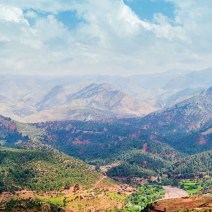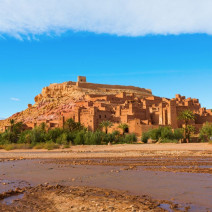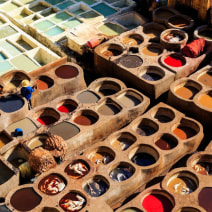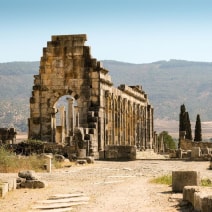Morocco Travel Guide
Morocco is a land of historic treasures, vibrant culture, and striking landscapes. From riding camels across the vast dunes of the Sahara Desert to wandering the bustling medinas of Marrakech, there’s always something fascinating to discover. Hike through the dramatic gorges of the Atlas Mountains, trek valleys such as Ourika and Ouirgane, and visit traditional Berber villages like Imlil. Explore the famous tanneries of Fes and stay in charming riads to enjoy authentic Moroccan hospitality.
Morocco has a population of over 33.8 million. Its capital is Rabat, and the largest city is Casablanca. Morocco's two official languages are Arabic and Amazigh (Berber), but many Moroccans speak and understand French. English is increasingly common, especially in areas popular with tourists. With its mix of stunning scenery, rich traditions, and lively cities, Morocco is waiting to be explored.
We’ve outlined some general information that may be helpful to you when planning your next holiday to Morocco.

Time Zone & Currency in Morocco
The currency is the Moroccan Dirham. Morocco is one hour ahead of Greenwich Mean Time (GMT) throughout the year.

Weather in Morocco
Morocco’s climate is generally warm and dry, with hot summers, mild winters, and regional variations, including cooler conditions in the mountains and desert conditions inland.

Reading For Your Morocco Tour
In Morocco by Edith Wharton
The Caliph’s House: A Year in Casablanca by Tahir Shah
Dreams of Trespass: Tales of a Harem Girlhood by Fatima Mernissi
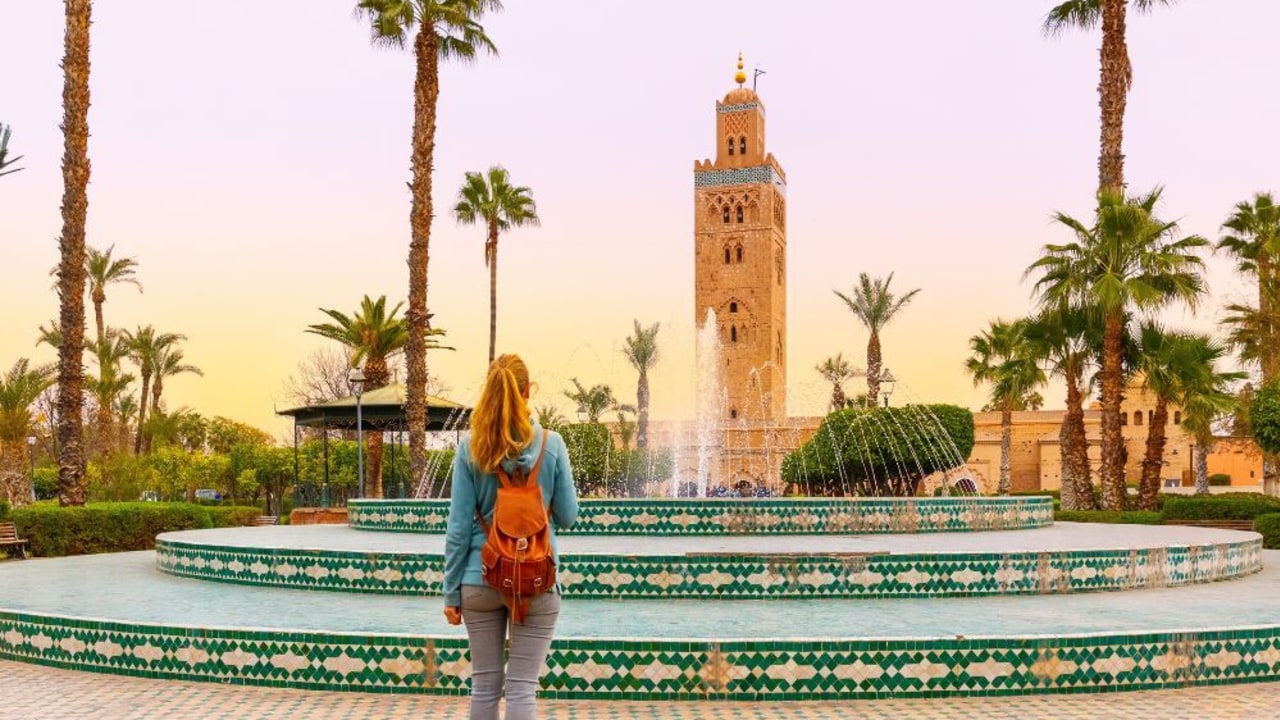
Best time to go to Morocco
Although Morocco can be visited year-round, our trips take place in April, May, September, and October, when the weather is comfortably warm and ideal for exploring. Spring and autumn provide the best conditions for sightseeing and enjoying outdoor activities.
Top activities and sights in Morocco
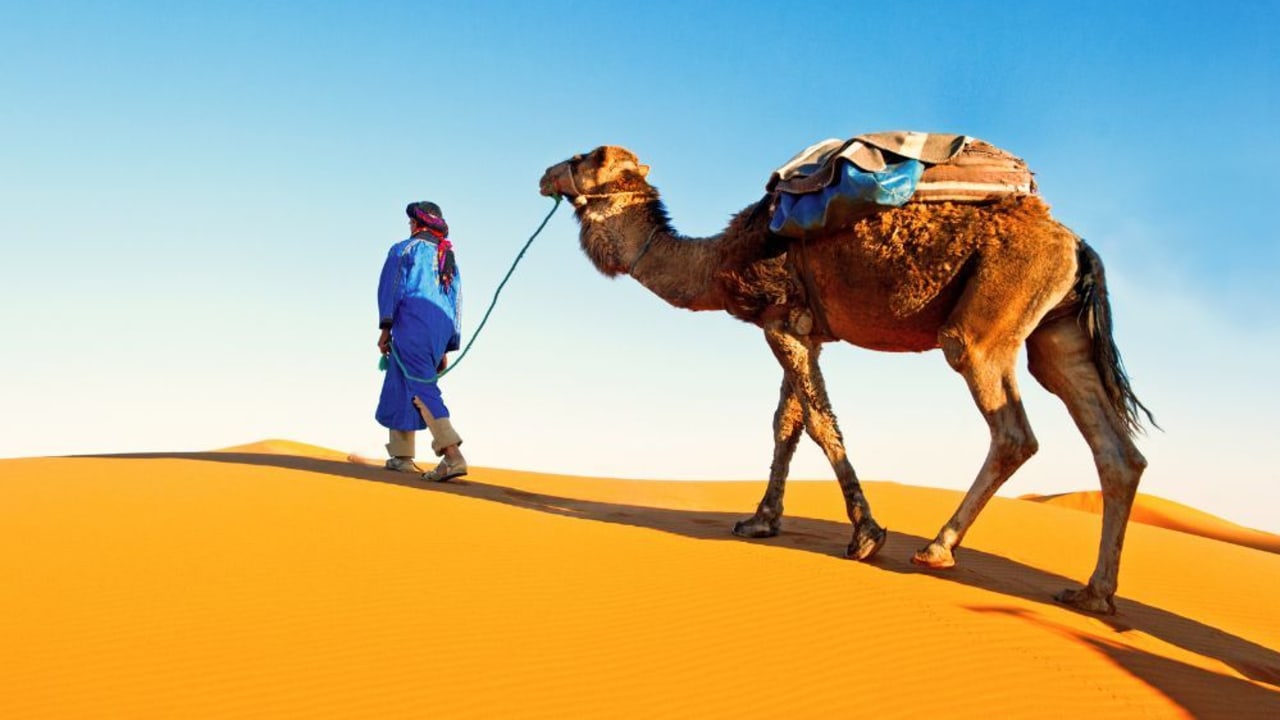
Top 10 Things To Do In Morocco
From riding camels across the vast dunes of the Sahara Desert to exploring the vibrant medinas of Marrakech, Morocco is a land full of adventure. Wander through the famous tanneries of Fes, hike through the dramatic gorges of the Atlas Mountains, and experience authentic Moroccan hospitality by staying in traditional riads.
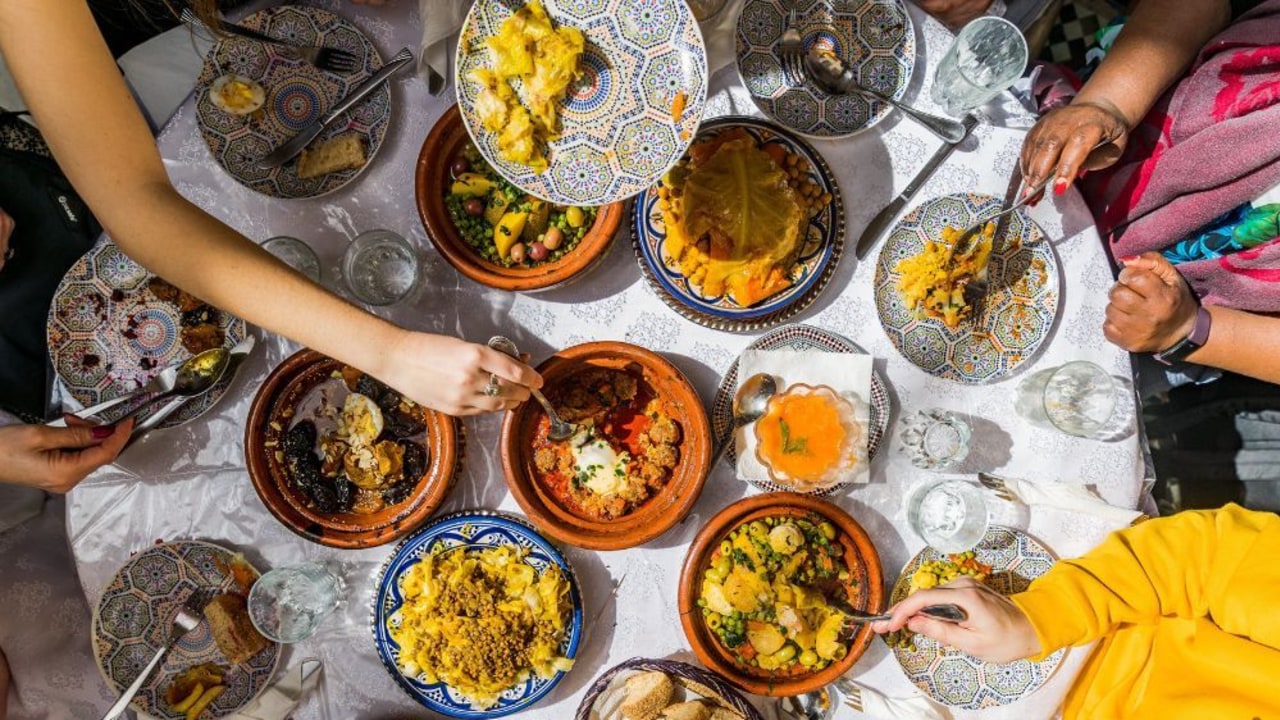
Food and drink in Top 10 Things To Do In Morocco
Moroccan cuisine is regarded as one of the finest in the world, rich in flavours and traditions. Among the many famous dishes are:
- Tagine: Slow-cooked stews of meat or vegetables, often flavoured with saffron, cinnamon, and preserved lemons.
- Couscous: Steamed semolina grains served with meat, vegetables, and a savoury broth.
- Pastilla: A sweet and savoury pastry typically filled with spiced pigeon or chicken, almonds, and cinnamon.
- Harira: A traditional soup of tomatoes, lentils, chickpeas, and herbs, often enjoyed during Ramadan.
Meals are often enjoyed as mezze-style spreads, with a variety of small dishes shared among family and friends. They are accompanied by warm flatbreads, olives, and an array of fragrant spices such as cumin, paprika, and saffron. Alcohol is available in larger cities and international hotels, but Morocco is predominantly non-alcoholic in traditional settings. Mint tea is a refreshing pick-me-up in Morocco. You can order it in a café by saying “Atini Attay”. The sweetened green tea is poured into a decorative tea glass from a great height and if often used to welcome guests. It is more than just a tea, it's a ceremony.
Morocco Travel Guide FAQs
What should I know about Morocco’s history?
Morocco’s history stretches back thousands of years, shaped by Berber, Phoenician, Carthaginian, Roman, Arab, and later European influences. Ancient cities such as Volubilis showcase Roman ruins, while the medinas of Fes and Marrakech reflect centuries of Islamic architecture and culture. Morocco played an important role in trade across North Africa, connecting the Mediterranean and sub-Saharan regions via caravan routes. In more recent centuries, Morocco was influenced by the French and Spanish protectorates until gaining independence in 1956 under King Mohammed V. Today, Morocco is celebrated for its rich heritage, diverse culture, and vibrant cities, making it a captivating destination full of history and tradition.
Do I need a visa for Morocco?
No visa is required for Irish or British passport holders. Irish passports should be valid for at least 90 days after the return travel date. British passports should be valid for at least the proposed duration of stay in Morocco. Non-EU passport holders should check their visa and passport requirements with the relevant Embassy or Consulate. Before travelling, make sure your passport isn’t damaged.
Is alcohol available in Morocco?
Alcohol is not as widely available as it is in Europe. Alcohol beverages can only be served in licensed hotels and bars. Drinking alcohol in any premises other than in a licensed restaurant or bar is forbidden or within sight of a mosque.
Is it safe to travel in Morocco?
The places we visit on our itineraries are generally safe, and our guides will always be looking out for you. However, as in any large city, opportunists and pickpockets can be present. It’s wise to remain vigilant, particularly at busy tourist attractions, and to take good care of your personal belongings. Make use of the hotel safe and carry a photocopy of your passport when you’re out and about. Exercise extra caution when using public transport.
What should I know about shopping in the markets in Morocco?
In Morocco’s souks you’ll find a tempting array of goods, from aromatic spices, rose water and preserved lemons to decorative metal-work lamps, leatherwork, jewellery and pottery. Bargaining is a major part of the shopping experience. Do as the locals do and never pay the first price quoted, take your time and decide what you think the item is worth before striking a deal. Never feel under pressure to buy anything, you can walk away if you think the price is not right.
What should I pack to wear in Morocco?
It’s important to dress respectfully to avoid causing offence or drawing unwanted attention. While travellers aren’t expected to dress as conservatively as locals, especially women, it’s still wise to pack clothing that allows you to cover up when needed. In cities such as Marrakech and Fes, it’s generally acceptable to wear loose-fitting trousers, shorts or skirts that reach below the knee, and short-sleeved tops. Loose clothing is best, as it keeps you cool and is more culturally appropriate than tight-fitting garments. In more rural or conservative areas, packing a few tunics and long-sleeved shirts is a good idea for layering. A shawl or scarf can also be useful for covering up when required. When visiting mosques, travellers should wear clothing that covers from the ankles upwards, and women should cover their hair with a scarf. Comfortable, good-quality footwear is essential throughout Morocco, even if you’re not planning any hiking. Streets and paths can be uneven or dusty, so worn-in walking shoes with good grip are recommended.
Advice for the Sahara Desert camp
During the day and into the late afternoon, the Sahara can become quite warm, particularly under direct sunlight. We recommend lightweight clothing, sunglasses, a high-factor sun lotion, and a hat. A cotton headscarf is ideal to wear during the camel ride for protection from the sun and sand.
What is a riad?
During your stay in Morocco you will be staying in some local riads. A riad is a traditional large house in Morocco, built around a central courtyard or garden and often converted into a hotel. A riad stay will give us an authentic local experience together with simple home comforts. Depending on the number of people travelling, the group could be split into different riads.
Morocco Travel Information
- For up-to-date information regarding entry into Jordan please see: www.dfa.ie
- Official Morocco Tourism Board: www.visitmorocco.com
